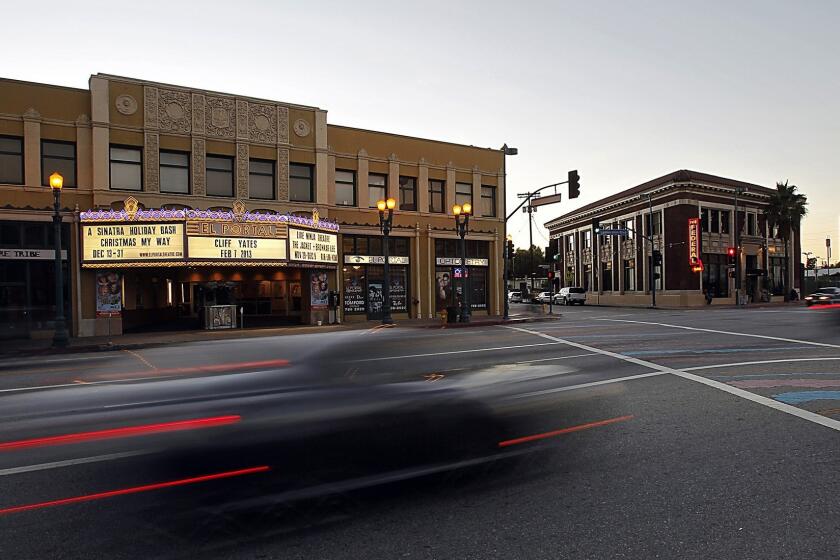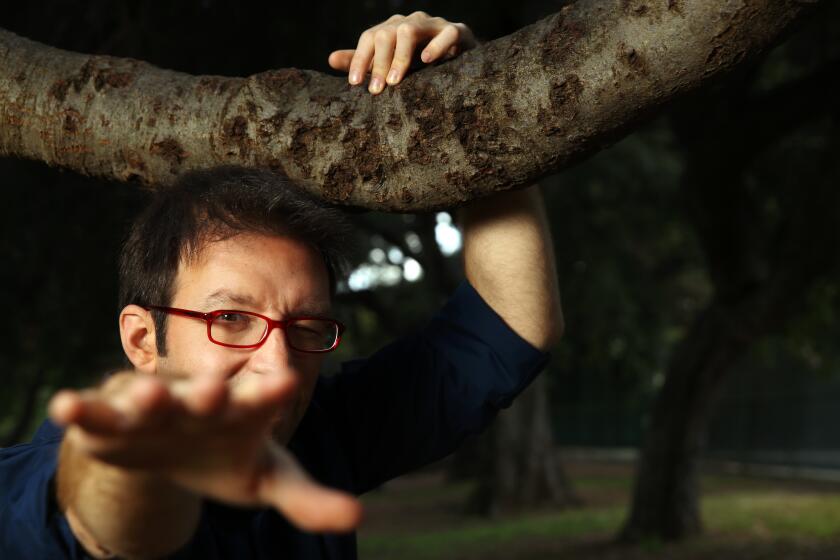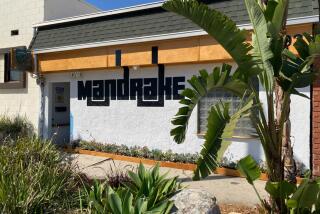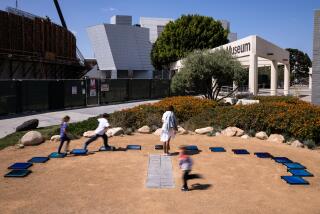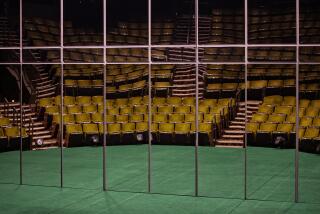The Markaz is closing, but the Middle East arts center will return as an online publication
- Share via
The Markaz, a Los Angeles arts center devoted to showcasing Middle East culture through lectures, film screenings, performances and exhibitions, has announced that it is shutting down.
“With the pandemic adversely impacting artists and arts organizations everywhere, we have no other option but to shut down the Markaz definitively,” read a statement published to the organization’s website on Tuesday.
Jordan Elgrably, a co-founder of the organization, said the closure of the Markaz, in its current form, is permanent.
“With the disease, unfortunately we’re not going to see the season open up again,” Elgrably said. “We don’t have a vaccine. There may never be a vaccine.”
Instead, he said, the Markaz is going online — but in a new guise. In the fall, the center will resurface as “The Markaz Review,” an online culture journal.
“It will be multilingual and multinational,” said Elgrably. “We have correspondents in the U.K., France, Lebanon. We’re working on getting a correspondent in Morocco.”
Los Angeles’ COVID-19 arts relief program will dispense grants to artists, small arts organizations and theaters at “the greatest risk of hardship.”
Founded as the Levantine Center in 2001, the organization changed its name to the Markaz — which means “the center” in several Middle Eastern languages — in 2015. The group, whose main mission was to promote “a greater understanding of the Middle East and North Africa by presenting artistic and educational programs,” staged musical performances, lectures, film screenings and even a comedy night.
For many years, it occupied a storefront on Pico Boulevard in Mid-City. But in 2016 it gave up the space, functioning instead as a roving arts organization, producing occasional events in locations around Los Angeles.
In late March, the Markaz was scheduled to present a one-night theatrical event inspired by Lebanese author Joumana Haddad’s novel “The Seamstress’ Daughter” at the Odyssey Theatre. That presentation was cancelled when Gov. Gavin Newsom issued the safer-at-home order on March 19.
Elgrably says that without a dedicated space or the possibility of being able to stage live events for the foreseeable future, it didn’t make sense to try to continue as they had. He is hopeful that the online journal will be a new chapter — one with even greater scope.
“We are,” he said, “working on making it more global.”
Helder Guimarães’ show “The Present” has sold out through mid-August. How he and a small team pull off the watch-from-home show and why it all works.
More to Read
The biggest entertainment stories
Get our big stories about Hollywood, film, television, music, arts, culture and more right in your inbox as soon as they publish.
You may occasionally receive promotional content from the Los Angeles Times.
